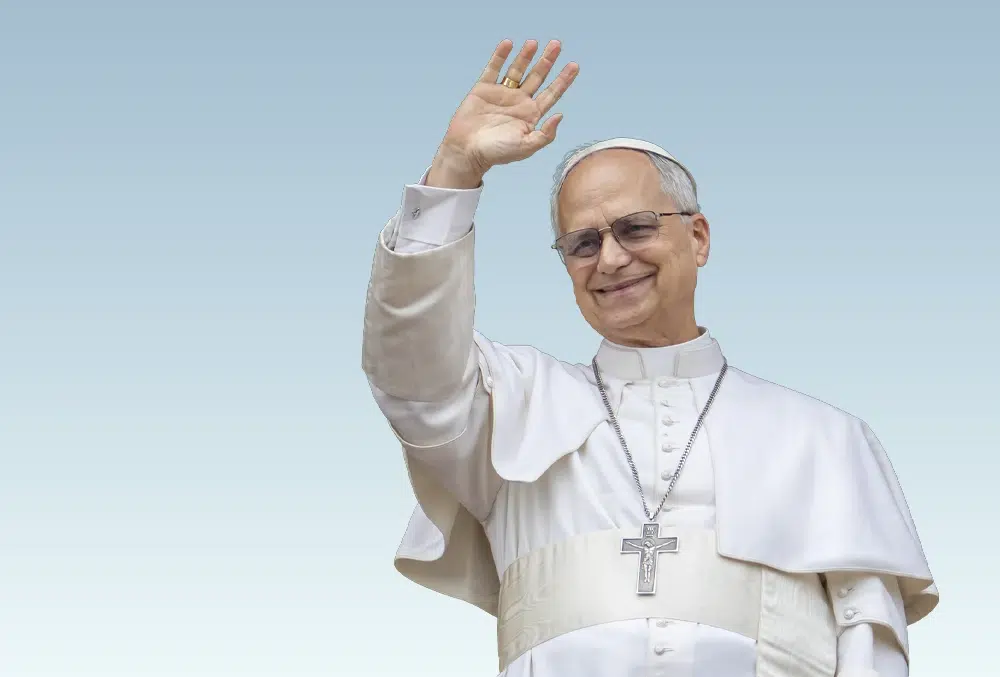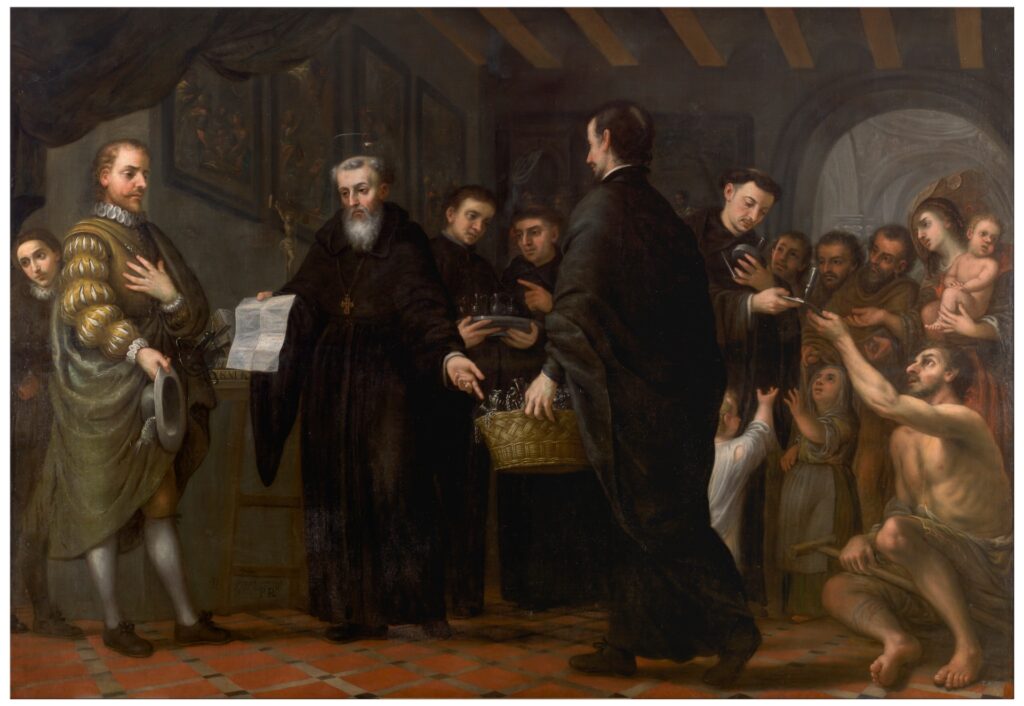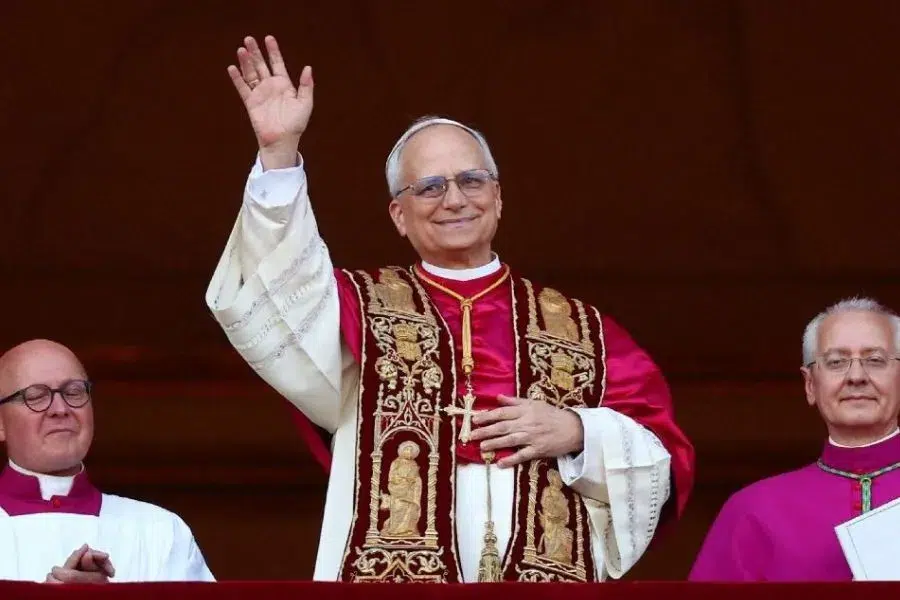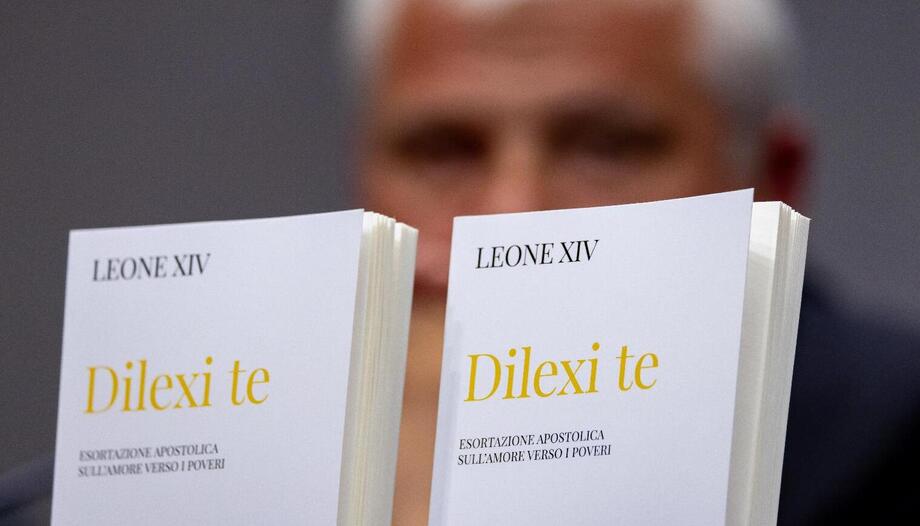
On Sunday, November 16, the Catholic Church celebrates the ninth World Day of the Poor. This event, scheduled on the penultimate Sunday of Ordinary Time, has become a basic moment for reflection and pastoral action throughout the world.
Pope Leo XIV has proposed a motto taken from from the Book of Tobit: "Do not turn away your face from the poor"." (Tb 4, 7). The following is the full message that was signed on June 13, 2025 in the Vatican on the day of the memory of St. Anthony of Padua, patron saint of the poor.
1. «You, Lord, are my hope» (Salt 71, 5). These words come from a heart oppressed by serious difficulties: «You have put me through many troubles» (v. 20), says the psalmist. In spite of this, his soul is open and confident, because it remains firm in faith, which recognizes God's support and proclaims it: «You are my rock and my fortress» (v. 3). From this comes the unfailing confidence that hope in him does not disappoint: «I take refuge in you, O Lord, may I never be ashamed» (v. 1).
In the midst of life's trials, hope is encouraged by the firm and encouraging certainty of God's love, poured into hearts through the Holy Spirit. That is why it does not disappoint (cf. Rm 5:5), and St. Paul can write to Timothy: «We toil and struggle because we have set our hope on the living God» (1Tm 4, 10). The living God is, in fact, the «God of hope» (Rm 15:13), which, in Christ, through his death and resurrection, has become «our hope» (1Tm 1, 1). We cannot forget that we have been saved in this hope, in which we need to remain rooted.
2. The poor can become a witness of a strong and reliable hope precisely because they profess it in a precarious condition of life, marked by deprivation, fragility and marginalization. He does not trust in the securities of power or of having; on the contrary, he suffers from them and is often a victim of them. His hope can only rest elsewhere. Recognizing that God is our first and only hope, we also perform the passage of the hopes ephemeral to the hope durable. Faced with the desire to have God as a companion on our journey, riches become relative, because we discover the true treasure that we really need.
The words with which the Lord Jesus exhorted his disciples ring out loud and clear: «Do not store up treasures on earth, where moth and rust consume them, and thieves break through walls and steal them. Lay up for yourselves treasures in heaven, where no moth or rust can consume them., and thieves who drill and steal» (Mt 6, 19-20).

3. The most serious poverty is not knowing God. This is what the Pope Francis when in Evangelii gaudium wrote: «The worst discrimination suffered by the poor is the lack of spiritual attention. The vast majority of the poor have a special openness to the faith; they need God and we cannot fail to offer them his friendship, his blessing, his Word, the celebration of the Sacraments and the proposal of a path of growth and maturation in the faith» (n. 200).
Here we see a fundamental and totally original awareness of how to find one's treasure in God. Indeed, the apostle John insists: «He who says, “I love God,” and does not love his brother, is a liar. How can he love God, whom he does not see, who does not love his brother, whom he sees?» (1 Jn 4, 20).
It is a rule of faith and a secret of hope that all the goods of this earth, the material realities, the pleasures of the world, the economic well-being, although important, are not enough to make the heart happy. Riches often deceive and lead to dramatic situations of poverty, the most serious of which is to think that we do not need God and that we can lead our lives independently of Him. The words of St. Augustine come to mind: «...".«Let God be all your presumption: be destitute of Him, and so shall you be filled with Him. Whatever you possess without Him will cause you greater emptiness.» (Enarr. in Ps. 85, 3).
4. Christian hope, to which the Word of God refers, is certainty on the path of life, because it does not depend on human strength but on the promise of God, who is always faithful. For this reason, Christians from the beginning wanted to identify hope with the symbol of the anchor, which gives stability and security.
Christian hope is like an anchor that fixes our heart on the promise of the Lord Jesus., who has saved us by his death and resurrection and who will return again in our midst. This hope continues to point to the «new heaven» and the «new earth» as the true horizon of life (2 P 3, 13) where the existence of all creatures will find its authentic meaning, for our true homeland is in heaven (cf. Flp 3, 20).
The city of God, therefore, commits us to the cities of men. These must, from now on, begin to resemble it. Hope, sustained by the love of God poured into our hearts through the Holy Spirit (cf. Rm 5, 5 transforms the human heart into fertile soil, where charity can sprout for the life of the world. The Church's Tradition constantly reaffirms this circularity between the three theological virtues: faith, hope and charity.
Hope is born of faith, which nourishes and sustains it, on the foundation of charity, which is the mother of all virtues. And we need charity today, now. It is not a promise, but a reality to which we look with joy and responsibility: it commits us, orienting our decisions to the common good. Whoever lacks charity not only lacks faith and hope, but also deprives his neighbor of hope.
5. The biblical invitation to hope therefore entails the duty to assume consistent responsibilities in history, without delay. Charity, in fact, «represents the greatest social commandment» (Catechism of the Catholic Church, 1889). Poverty has structural causes that must be addressed and eliminated. While this is happening, we are all called to create new signs of hope that bear witness to Christian charity, as did many saints of all ages. Hospitals and schools, for example, are institutions created to express acceptance of the weakest and most marginalized.
Today they should already be part of the public policies of every country, but wars and inequalities often prevent them from doing so. More and more signs of hope today are family homes, communities for minors, centers for listening and welcoming, soup kitchens for the poor, shelters, popular schools: how many signs, often hidden, to which perhaps we do not pay attention and yet so important to shake us out of indifference and motivate us to commit ourselves to various forms of volunteer work.
The poor are not a distraction for the Church, but the most beloved brothers and sisters., Because each of them, by their very existence, and even by their words and the wisdom they possess, provokes us to touch the truth of the Gospel with our hands. For this reason, the World Day of the Poor wants to remind our communities that the poor are at the center of all pastoral action. Not only of its charitable dimension, but also of what the Church celebrates and proclaims.
God has assumed his poverty in order to enrich us through their voices, their stories, their faces. Every form of poverty, without excluding any, is a call to live the Gospel concretely and to offer effective signs of hope.

6. This is the invitation that comes to us from the Jubilee celebration. It is not by chance that World Day of the Poor is celebrated towards the end of this year of grace. When the Holy Door closes, we will have to guard and transmit the divine gifts that have been poured into our hands throughout a whole year of prayer, conversion and witness.
The poor are not objects of our pastoral care, but creative subjects who stimulate us to find ever new ways of living the Gospel today. Faced with the succession of new waves of impoverishment, there is a risk of becoming accustomed and resigned. Every day we meet poor or impoverished people, and sometimes it can happen that we ourselves are the ones who have less, who lose what we once thought was secure: housing, adequate food for the day, access to medical care, a good level of education and information, freedom of religion and freedom of expression.
In promoting the common good, our social responsibility is based on the creative gesture of God, who gives to all the goods of the earth; and just as these, so too, are the goods of the earth. the fruits of man's labor must be equitably accessible. Helping the poor is, in fact, a matter of justice rather than charity. As St. Augustine observes: «You give bread to the hungry, but it would be better if no one were hungry and you had no one to give to. You clothe the naked, but would that all were clothed and there were no need to clothe anyone!» (Homilies on the First Letter of St. John to the Parthians, VIII, 5).
I hope, therefore, that this Jubilee Year can give impetus to the development of policies to combat old and new forms of poverty, as well as new initiatives to support and help the poorest of the poor. Work, education, housing and health are the conditions for a security that will never be achieved with weapons. I am pleased with the initiatives already in place and with the commitment that a large number of men and women of good will are making every day at the international level.
Let us trust in Mary Most Holy, Consolation of the afflicted, and with her let us sing a song of hope making our own the words of the Te Deum: «In Te, Domine, speravi, non confundar in aeternum -In you, Lord, I have trusted, I shall not be disappointed forever».
Vatican City, June 13, 2025, memorial of St. Anthony of Padua, Patron Saint of the Poor. Leo XIV.

Pope Leo XIV's message for this World Day of the Poor is a document of theological density. He uses the figure of Tobit to remind the Church that love of God and love of neighbor are inseparable, and he situates the whole of the social action of the Church as the only coherent response to the Dilexi Te with which God has founded Creation and Redemption.
Pope Leo XIV asks parishes and dioceses not to limit the day to a collection, but to promote gestures of fraternity, such as shared lunches and listening centers. Pope Leo XIV uses this message to pastorally apply some of the principles of his first apostolic exhortation, Dilexi Te (I have loved you).
If in Dilexi Te Pope Leo XIV explained that God's foundational love is a concrete act and not an abstract idea, in this message he concludes the logical implication of that idea: «If we have been loved first (Dilexi te) for a God who has not turned his face away from us, how can we turn our face away from him in whom Christ is present?».
Pope Leo XIV is clear in affirming that «charity is not assistance». It is not a matter of «giving what we have in excess, but of sharing what we are» and of «questioning the economic structures» that perpetuate exclusion.
Table of Contents